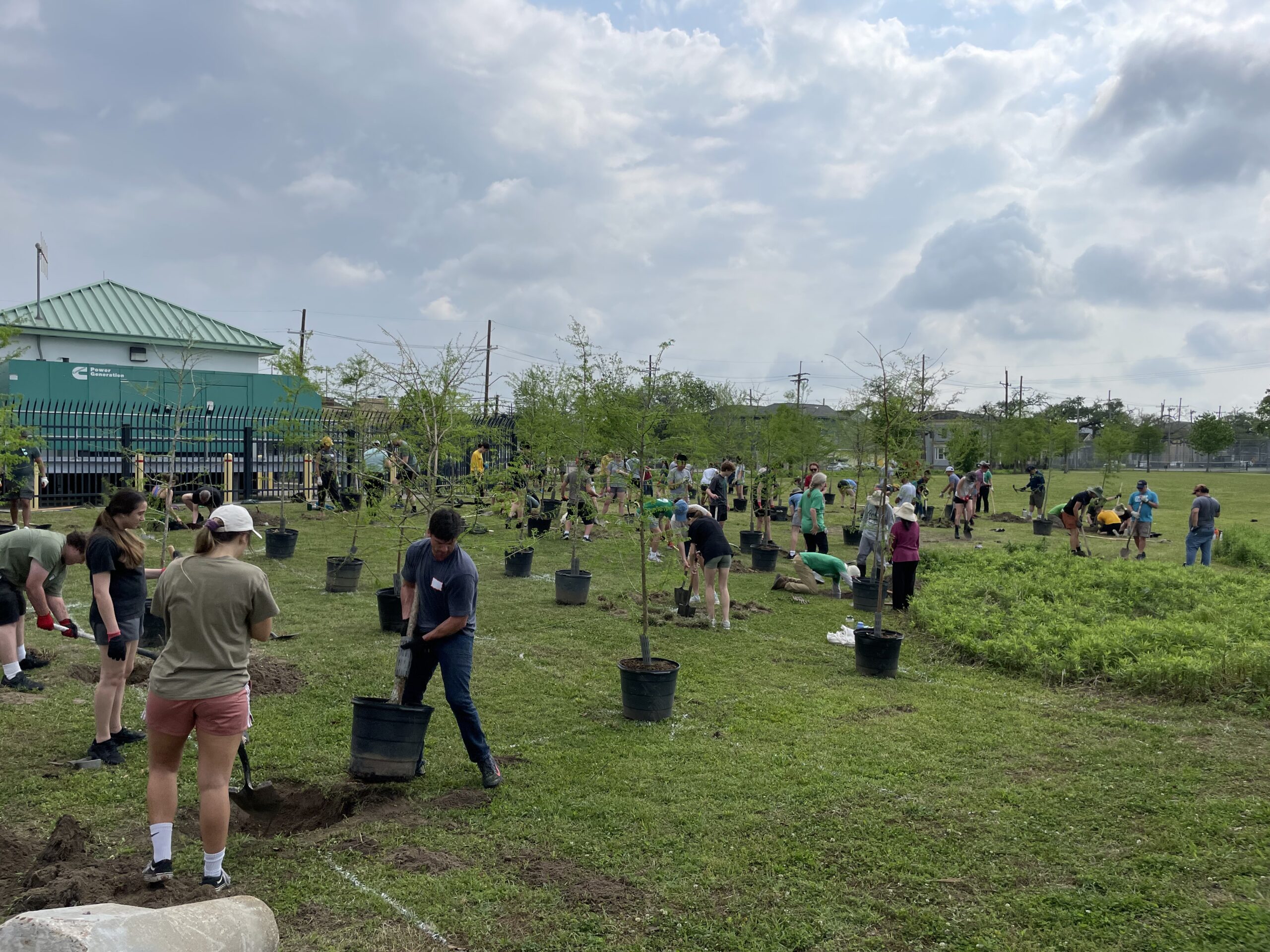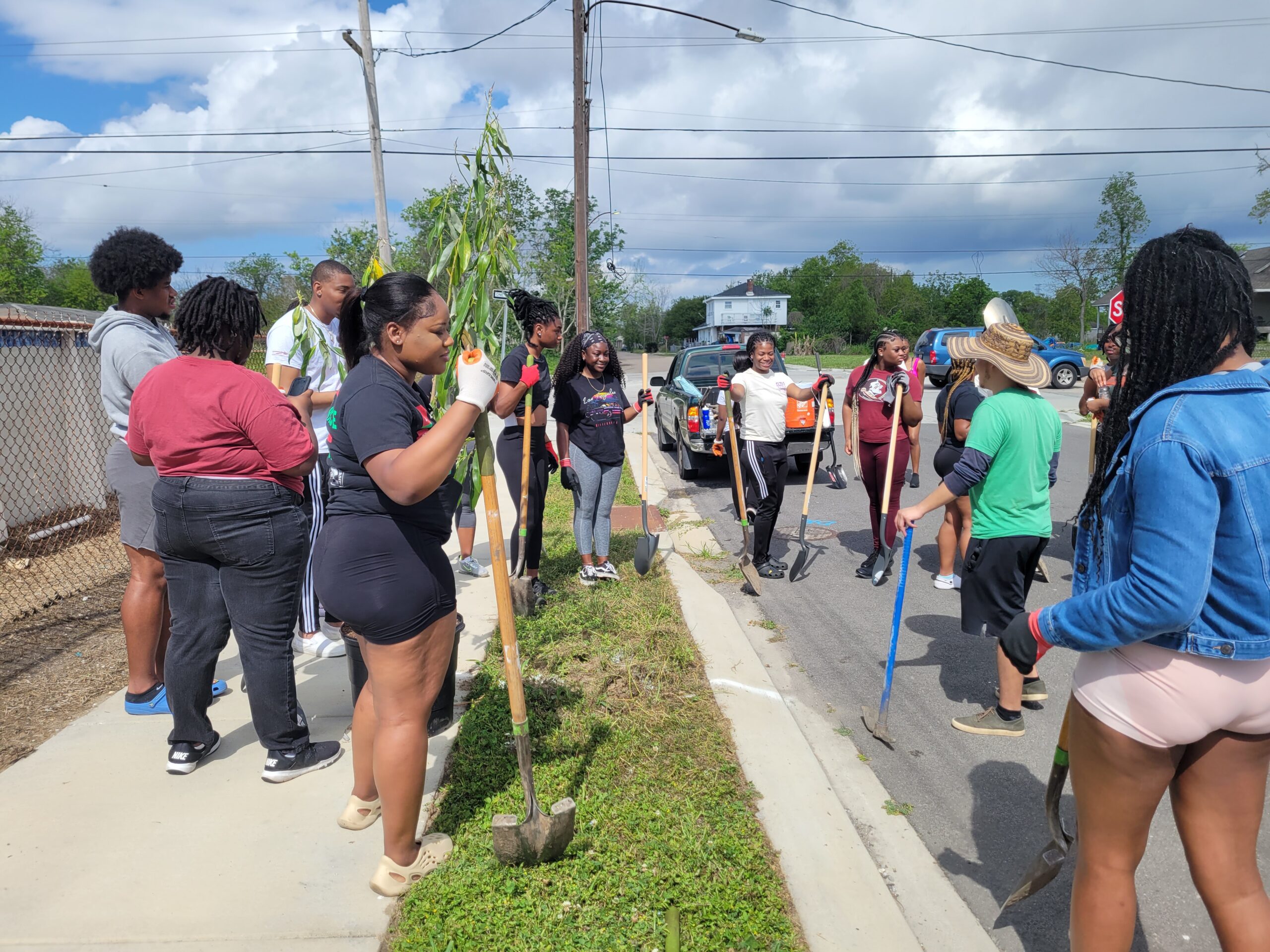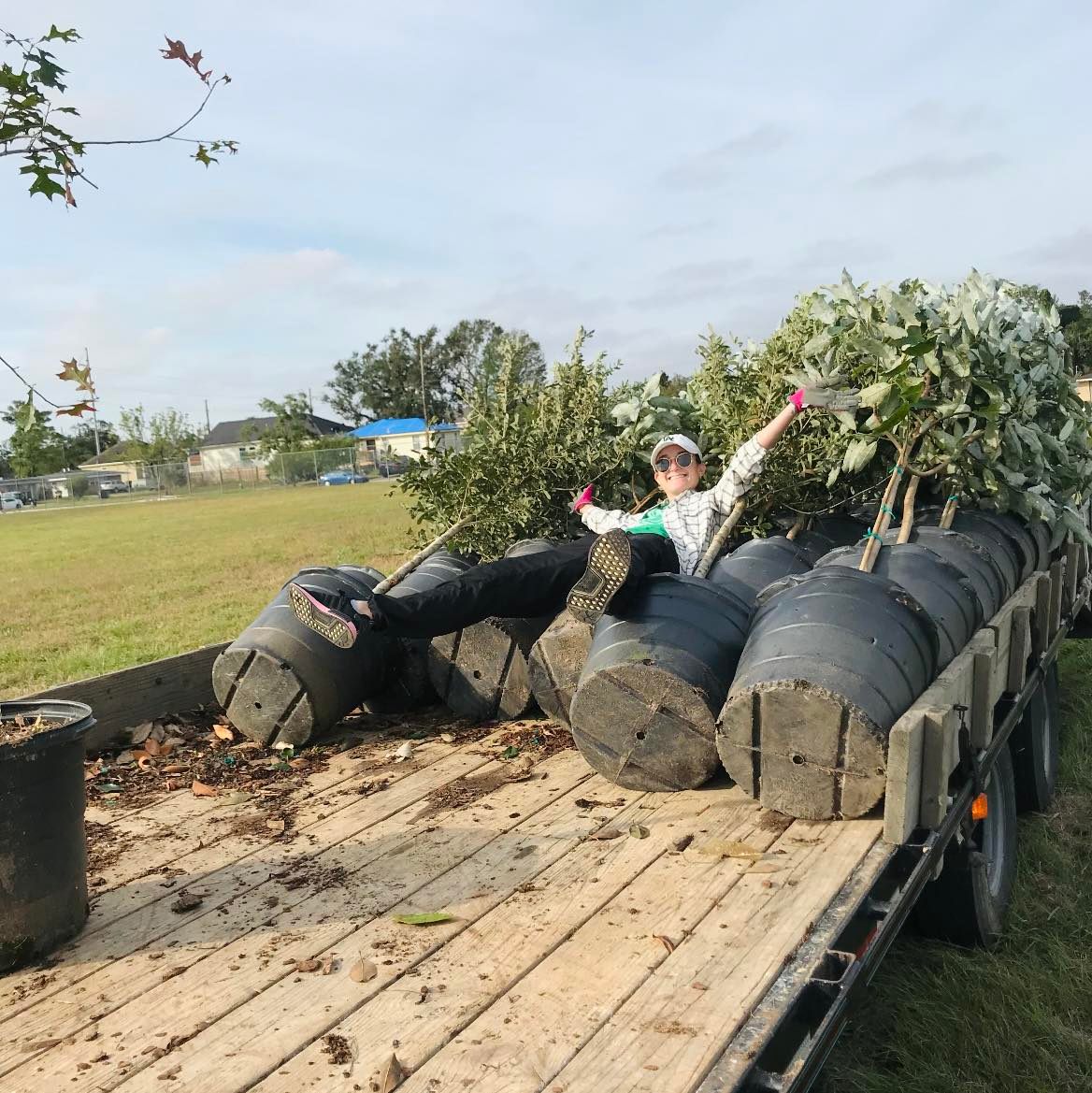By: Ciara Kenney, Apple Lydon, and Mia Siskin
SOUL is an organization that has set out to plant trees for the New Orleans community with an emphasis on underserved areas. The purpose of their work is to reduce pollution and flooding. Additionally, the trees also provide shade and added aesthetics for residents. We had a chance to speak to Volunteer and Data Coordinator, Rachel Conway about her experience working for SOUL. She explained that the majority of the people she encounters during tree plantings are apprehensive to receive external help from organizations like SOUL because of previous environmental disasters like Hurricane Katrina. Conway addresses that neighborhoods are still feeling the repercussions of Katrina. Such disasters have created distrust as many believe trees are a threat to their safety, and do more harm than good.

SOUL tree planting
Environmental equity is something that is important to consider when living in urban landscapes like New Orleans. New Orleans has endured various environmental disasters, such as hurricanes and flooding. These natural disasters contribute to continued perpetuated racism, poverty, and discrimination towards minority groups. This article aims to raise awareness for people who are detrimentally affected by the overwhelming factors that are addressed through SOUL and the goals of achieving environmental equity.

SOUL volunteers planting trees in the lower 9th ward
One of SOUL’s main goals is to cultivate a more environmentally equitable society, by targeting underserved communities and reforesting their landscapes. Reforestation gives these communities not only cleaner air but saves them money and electricity in the long run. Reforestation contributes to the biodiversity of urban landscapes, trees play an important role in mitigating climate change and reducing the likelihood of the urban heat island effect, cities like New Orleans are greatly affected by this phenomenon, especially in urban neighborhoods, where the city is much warmer than the outskirts, due to increased pavement and a lack of trees. According to Conway, SOUL is especially vital for New Orleans’s environmental rehabilitation because the city is one of the most deforested in the United States. “Have you ever seen a tree in the French Quarter? No!” Conway exclaims. New Orleans has a canopy coverage of 18%, when compared to New Orleans’s adjacent southern city Atlanta, that has a 47.9% canopy coverage, which is one of the highest percentages of tree coverage in the nation for urban areas.

Rachel Conway, SOUL Volunteer and Data Coordinator
Conway, a Tulane alum, contends that her fellow Tulanians live in a “bubble”, with all of the luscious greenery that surrounds Tulane’s campus. There is an evident correlation between wealth and resources and the canopy coverage that different areas sustain. Conway explains that Tulane has its own arborist, someone that plants and maintains trees, that is responsible for the campus’s foliage.
It is important, as Conway fiercely contends, that Tulane students educate themselves on how different New Orleans is from campus. Learning about SOUL and the work they do for New Orleans has encouraged us to think about the wider New Orleans population. We have learned how important trees are for our environment and how helpful they can be for people’s health and well-being.
For more information, visit:
soulnola.org
 NOLAbeings
Multimedia artist Claire Bangser created NOLAbeings as a portrait-based story project that marries...
NOLAbeings
Multimedia artist Claire Bangser created NOLAbeings as a portrait-based story project that marries...
 Data corner: Adobe Suite (create a PDF, social media graphic, presentation, edit a photo and video
Data corner is where you go to work with analytics and top tech skills. It takes on everything from PERL and SQL to Canva and Sprout Social.
Data corner: Adobe Suite (create a PDF, social media graphic, presentation, edit a photo and video
Data corner is where you go to work with analytics and top tech skills. It takes on everything from PERL and SQL to Canva and Sprout Social.
